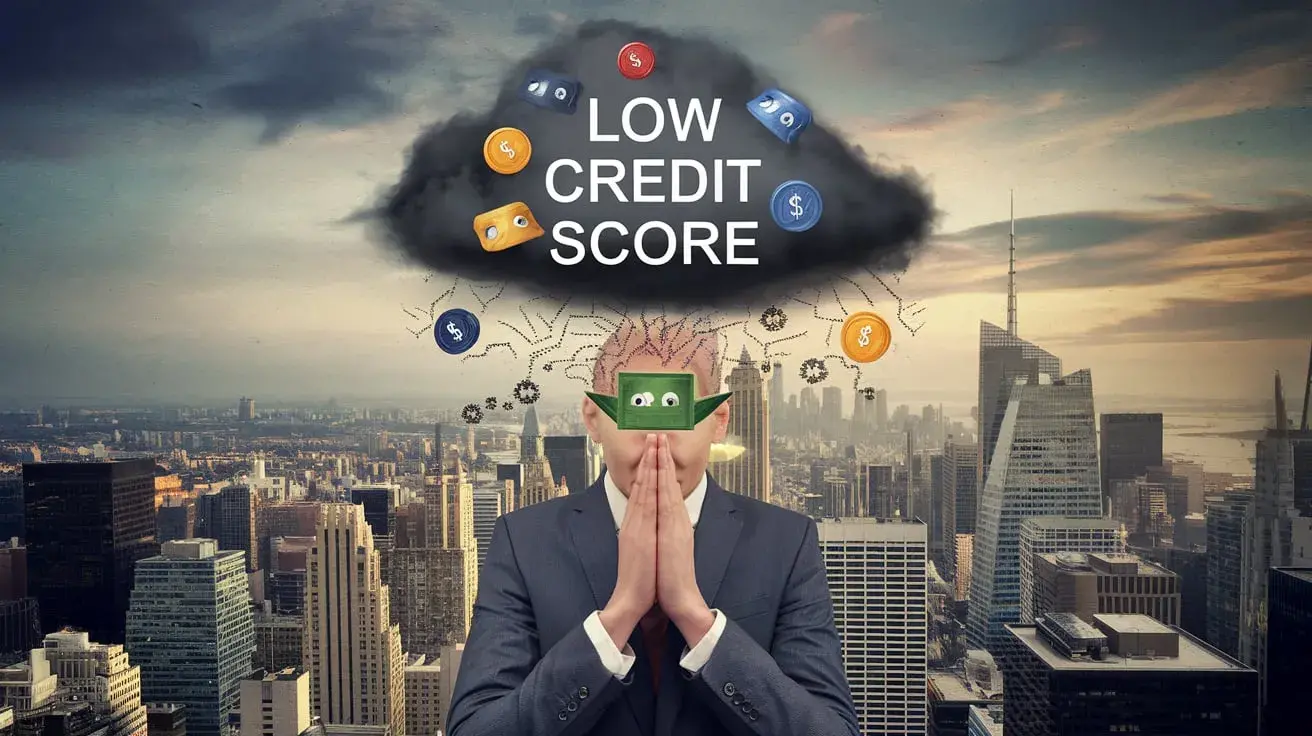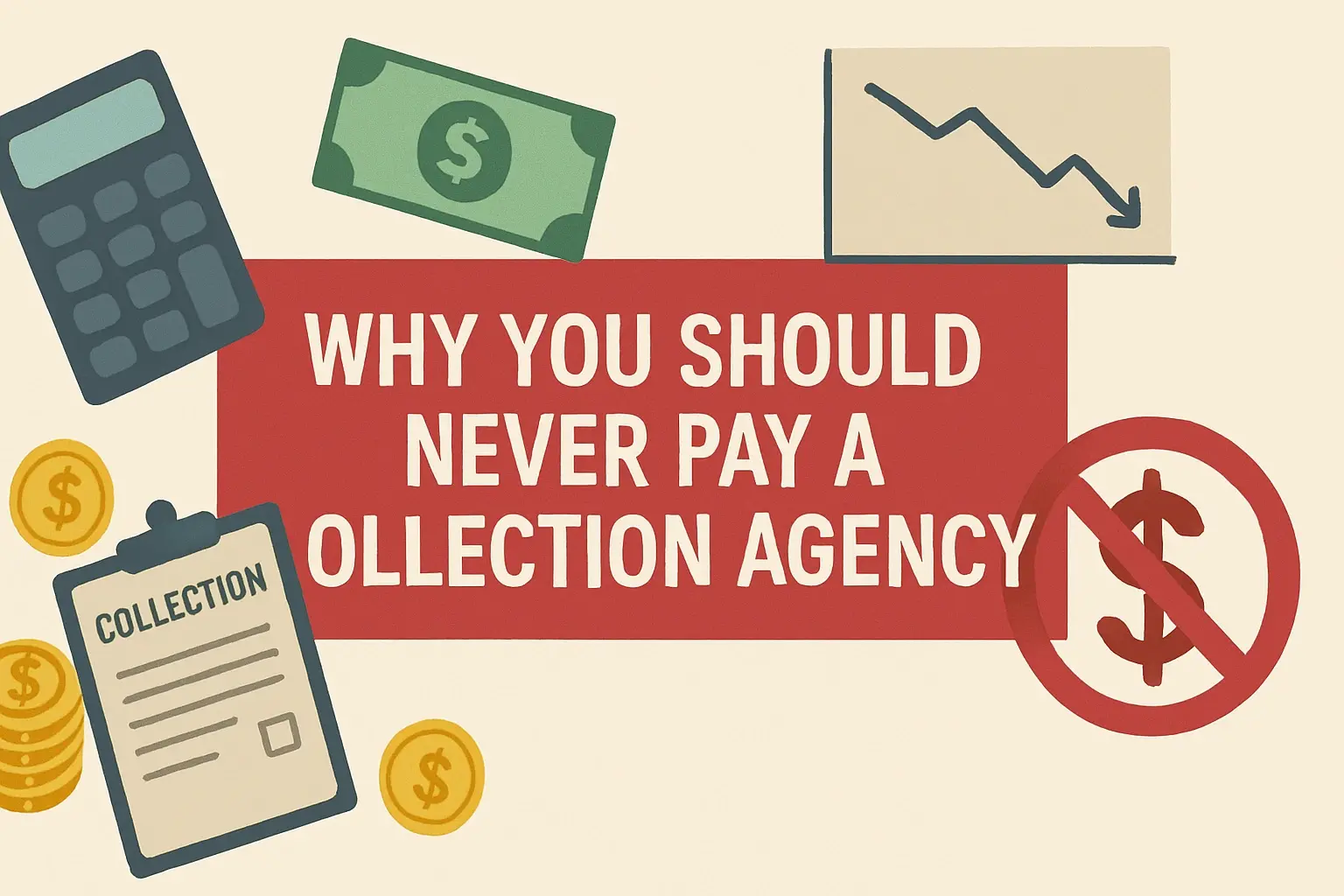-
Posted on: 23 Aug 2024

-
Your credit score is a crucial factor in your financial life. It's a three-digit number that represents your creditworthiness, influencing your ability to get approved for loans, credit cards, and even rent an apartment. A low credit score can severely limit your options and lead to higher interest rates. This article delves into what constitutes a low credit score, the reasons behind it, and how to improve it.
Understanding Credit Scores
Before defining what a "low" credit score is, it's essential to understand the credit scoring systems used. The two most common credit scoring models are FICO and VantageScore.
FICO Score
The FICO score, developed by Fair Isaac Corporation, is the most widely used credit scoring model by lenders. FICO scores range from 300 to 850, with higher scores indicating better creditworthiness.
VantageScore
VantageScore is another credit scoring model developed jointly by the three major credit bureaus: Experian, Equifax, and TransUnion. VantageScore also ranges from 300 to 850.
What is Considered a Low Credit Score?
While the specific ranges may vary slightly between FICO and VantageScore, here’s a general overview of how credit scores are categorized:
- Exceptional: 800-850
- Very Good: 740-799
- Good: 670-739
- Fair: 580-669
- Poor: 300-579
Therefore, a credit score below 580 is generally considered a low or poor credit score. Scores in the "Fair" range (580-669) can also present challenges, although they're not as limiting as "Poor" scores.
Impact of a Low Credit Score
Having a low credit score can significantly impact various aspects of your financial life. Here are some key areas where a poor credit score can be detrimental:
Difficulty Getting Approved for Loans
Lenders are less likely to approve loan applications from individuals with low credit scores. They perceive these borrowers as high-risk, fearing they may not repay the loan. This includes personal loans, auto loans, and mortgages.
Higher Interest Rates
Even if you're approved for a loan or credit card with a low credit score, you'll likely face much higher interest rates. This means you'll pay significantly more in interest over the life of the loan, increasing the overall cost.
Limited Credit Card Options
Access to credit cards becomes limited with a low credit score. You might only qualify for secured credit cards, which require a cash deposit as collateral, or cards with very high annual fees and low credit limits.
Difficulty Renting an Apartment
Landlords often check credit scores as part of their tenant screening process. A low credit score can make it difficult to rent an apartment, as landlords may view you as a risky tenant who might not pay rent on time.
Higher Insurance Premiums
In some states, insurance companies use credit scores to determine insurance premiums. A low credit score can lead to higher premiums for auto and homeowner's insurance.
Trouble Getting Utility Services
Utility companies may require a security deposit if you have a low credit score, as they see you as a higher risk of defaulting on your bills.
Employment Challenges
Some employers, especially in the financial sector, may check credit scores as part of their background checks. While not always a deciding factor, a low credit score could potentially impact your job prospects.
Causes of a Low Credit Score
Understanding the factors that contribute to a low credit score is crucial for taking steps to improve it. Here are some common causes:
Payment History
Payment history is the most significant factor influencing your credit score, accounting for about 35% of your FICO score. Late payments, missed payments, and defaults have a severe negative impact on your credit score. Even a single late payment can lower your score significantly.
Amounts Owed
The amount of debt you owe, also known as credit utilization, accounts for about 30% of your FICO score. High credit utilization, meaning you're using a large percentage of your available credit, can lower your score. Ideally, you should aim to keep your credit utilization below 30% on each credit card and overall.
Length of Credit History
The length of your credit history accounts for about 15% of your FICO score. A longer credit history generally results in a higher score, as it provides lenders with more data to assess your creditworthiness.
Credit Mix
Having a mix of different types of credit accounts, such as credit cards, installment loans (e.g., auto loans), and mortgages, can positively impact your credit score (about 10% of your FICO score). However, it's essential to manage each type of credit responsibly.
New Credit
Opening multiple new credit accounts in a short period can lower your credit score (about 10% of your FICO score). Each credit application results in a hard inquiry on your credit report, which can slightly lower your score. Furthermore, opening too many new accounts can signal to lenders that you're a higher-risk borrower.
Other Negative Information
Bankruptcies, foreclosures, collections accounts, and judgments can severely damage your credit score and remain on your credit report for several years.
How to Improve a Low Credit Score
Improving a low credit score takes time and discipline, but it's definitely achievable. Here are some strategies to help you rebuild your credit:
Pay Bills on Time
Prioritize paying all your bills on time, every time. Set up automatic payments or reminders to ensure you never miss a due date. Consistent on-time payments are the fastest way to improve your credit score.
Reduce Credit Utilization
Aim to keep your credit utilization below 30% on each credit card and overall. Pay down your balances as much as possible, and avoid maxing out your credit cards.
Become an Authorized User
Ask a trusted friend or family member with a good credit history to add you as an authorized user on their credit card. Their positive payment history can help boost your credit score.
Apply for a Secured Credit Card
A secured credit card requires a cash deposit as collateral, making it easier to get approved even with a low credit score. Use the card responsibly and pay your bills on time to build a positive credit history. Many secured cards graduate to unsecured cards after a period of responsible use.
Consider a Credit Builder Loan
Credit builder loans are designed to help people with poor or no credit establish a positive credit history. You make regular payments on the loan, and those payments are reported to the credit bureaus. The funds are often held in an account until the loan is repaid.
Check Your Credit Report Regularly
Obtain a free copy of your credit report from each of the three major credit bureaus (Experian, Equifax, and TransUnion) at AnnualCreditReport.com. Review your reports carefully for any errors or inaccuracies, and dispute them with the credit bureaus. Correcting errors can improve your credit score.
Be Patient
Improving a low credit score takes time. It won't happen overnight. Stick to your plan, be consistent with your efforts, and you'll eventually see positive results.
Avoiding Common Mistakes That Hurt Your Credit
Beyond actively improving your credit, it’s crucial to avoid common pitfalls that can further damage your score. These include:
- Ignoring Collections: Ignoring debt collectors won’t make the debt disappear. It’s best to address the debt and negotiate a payment plan or settlement.
- Closing Old Credit Cards: Closing old, unused credit cards can reduce your overall available credit, potentially increasing your credit utilization ratio.
- Failing to Monitor Your Credit: Regularly monitoring your credit report allows you to catch errors early and detect signs of identity theft.
- Co-signing Loans for Others: Co-signing a loan makes you responsible for the debt if the primary borrower fails to pay. This can negatively impact your credit if the borrower defaults.










